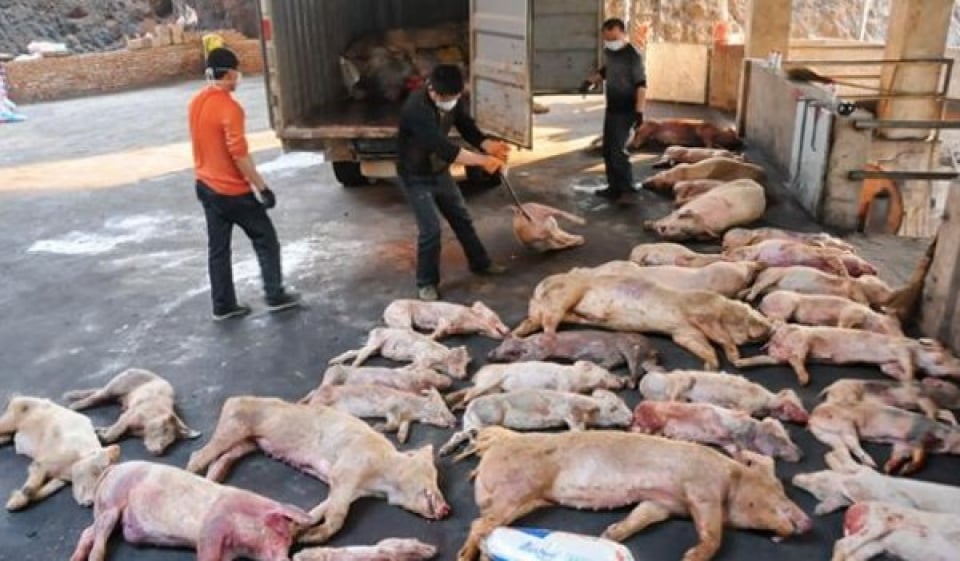A deadly pig virus, the “pig Ebola,” is spreading uncontrollably across huge swathes of the world in what’s become the biggest animal disease outbreak the planet has ever faced.
Outbreaks of African swine fever have recently taken hold in pig farms across mainland China, Hong Kong, North Korea, Mongolia, and Vietnam. There have also been reports of infected wild boars in parts of Eastern and Central Europe.

Up to 200 million pigs are currently infected, while millions more are being culled into an attempt to contain the situation. However, in all likelihood, the problem won’t be resolved for years to come.
“This is the biggest animal disease outbreak we’ve ever had on the planet,” said Dirk Pfeiffer, a veterinary epidemiologist at City University of Hong Kong and expert on African swine fever.
“It makes the foot and mouth disease and BSE [mad cow disease] outbreaks pale in comparison to the damage that is being done.”

What about this deadly virus?
African swine fever does not affect humans, even if you eat tainted pork. However, it is highly contagious to pigs and wild boars with almost a 100 percent fatality rate.
The virus itself is as tough as nails:
- It can survive in refrigerated blood for 6 years and in serum at room temperature for 18 months.
- It can even live in salami and salted meats that have not been cooked or smoked for 6 months.
- On top of that, it’s surprisingly resilient to temperature extremes and pH.
- There is currently no cure or vaccine, although researchers are investigating the use of gene editing to make pigs resistant to the virus.
- Recent attempts to develop a vaccination against African swine fever have also shown promise but require further research.

Just as the name suggests, the virus started in Africa in the early 20th century where it remained until 1957, when it was reported in Lisbon, Portugal. In Europe and Africa, the virus quietly bumbled along, causing infrequent outbreaks that were relatively well contained. The virus even reached Cuba in 1971… An act of biological warfare to destabilize the Cuban economy?
Now, African swine fever has done the one thing that scientists were fearing most: it’s got a foothold in China, home to 440 million pigs, half the planet’s total. In August 2018, China reported the first African swine fever outbreak in Liaoning province and its since been spreading like wildfire across East Asia and beyond.
“It’s unprecedented, and there are many dimensions of the situation that are still not fully understood,” said Justin Sherrard, Rabobank’s global strategist for animal protein.
This animal disease outbreak will also have dramatic consequences on the price of pork in the next few months. Be prepared! Stockpile!
[OIE, Rabobank, The Guardian, FAO, VetRecord, Reuters, IFL Science]













why does it have to be african swine fever? it ain’t got nothing to do with africa. always trying to make black people sound bad.
Because it primarily originated from Sub-Saharan Africa…